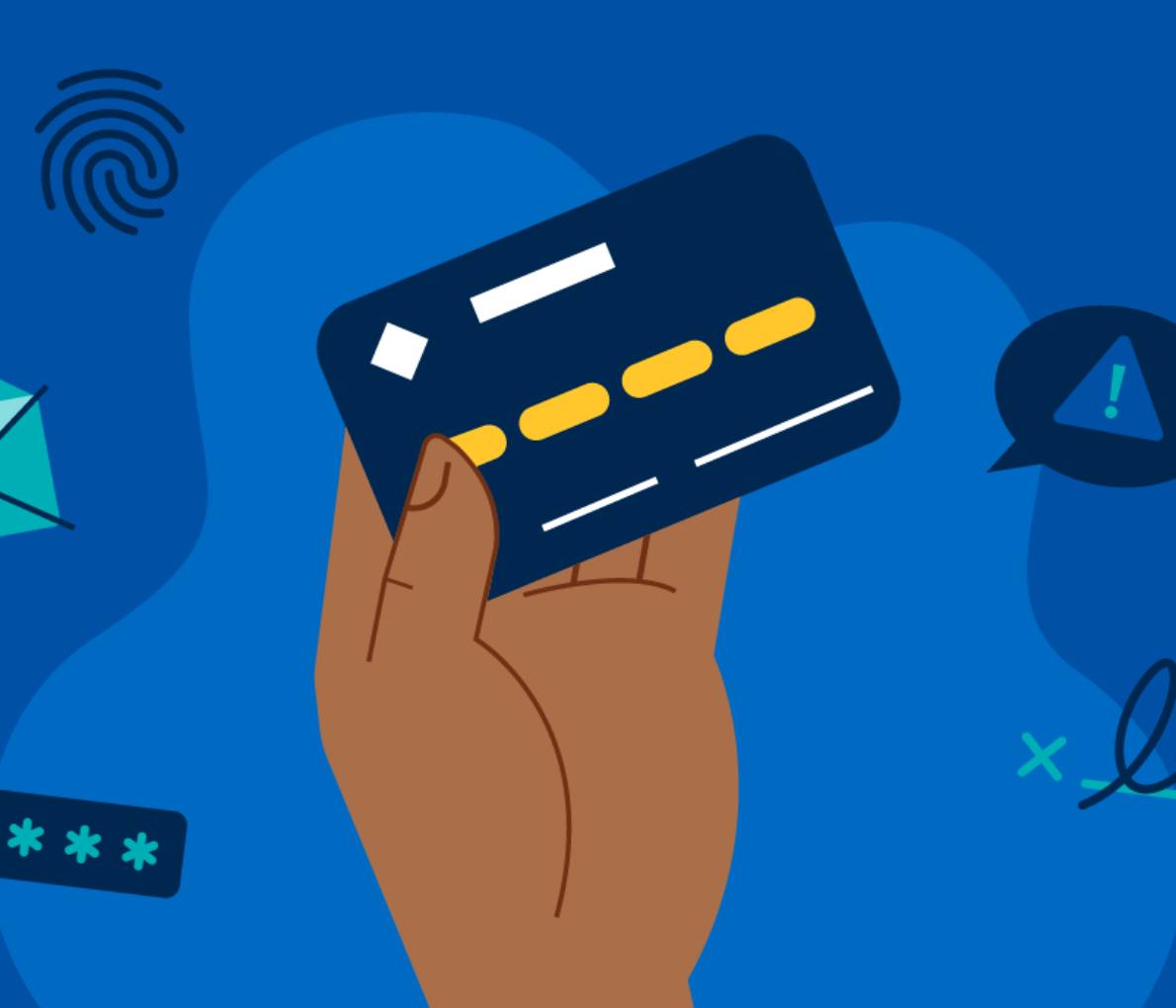Published November 29, 2022 • 3 Min Read
Because you just recently moved to Canada, you’ll soon find out how useful a credit card is to buy everyday items.
Using your credit card and paying your bill on time is one of the best ways to build a credit history in Canada. And good credit history can help you qualify for loans and mortgages so you can make major purchases, such as a home or a car down the road.
Because your credit card is an important tool, it’s as important to protect yourself from credit card fraud — people who want to steal your card information and use it themselves. Here’s how to protect yourself from credit card fraud.
![How to Protect Yourself from Credit Card Fraud [INFOGRAPHIC]](https://www.rbcroyalbank.com/en-ca/wp-content/uploads/sites/12/2023/08/RBC_CreditCardFraud_01_20221202-scaled-14.jpg)
![How to Protect Yourself from Credit Card Fraud [INFOGRAPHIC]](https://www.rbcroyalbank.com/en-ca/wp-content/uploads/sites/12/2023/08/RBC_CreditCardFraud_02_20221202-scaled-14.jpg)
![How to Protect Yourself from Credit Card Fraud [INFOGRAPHIC]](https://www.rbcroyalbank.com/en-ca/wp-content/uploads/sites/12/2023/08/RBC_CreditCardFraud_03_20221202-scaled-14.jpg)
![How to Protect Yourself from Credit Card Fraud [INFOGRAPHIC]](https://www.rbcroyalbank.com/en-ca/wp-content/uploads/sites/12/2023/08/RBC_CreditCardFraud_04_20221202-13.jpg)
Protect yourself from credit card fraud
Online shopping
-
Beware of fake online stores: [image of a browser window with these indicated?]
-
Strange URLs
-
Spelling mistakes
-
Low-quality images
-
Shop securely
-
Look for “HTTPS” + a lock [Image of this] Web addresses that start with HTTPS (not HTTP) and have a lock icon are secure. Information sent between your browser and the website is secure.
-
Don’t send personal information on public Wi-Fi
Your email
Your email address is often used for logins, so it’s a target for scammers.
5 ways to help keep your email account safe:
1. Only give it to people or companies you trust.
2. Use a separate one for sign-ups like subscriptions.
3. Don’t open spam, links or attachments you didn’t expect.
4. Never share credit card info in emails.
5. Remember, credit card providers won’t ask for personal info by email.
Protect your smartphone
Your smartphone holds a lot of information scammers would love. Use strong security settings and follow these basic tips to protect what’s on your phone.
-
Always lock your phone or set it to lock automatically when you’re not using it.
-
Use a unique password, pattern, facial recognition or fingerprint to unlock.
-
Keep your phone’s software and apps up to date.
-
Only download apps from the Apple Store or Google Play Store.
-
Don’t reuse passwords. Use different ones for every app, account and website.
6 ways to keep your physical card safe
1. Activate your card when you receive it.
2. Sign your card.
3. Choose a PIN that’s hard to guess.
4. Always know where it is.
5. Use tap to pay.
6. Signup for electronic statements.
Using your credit card over the phone
-
Never give your card number to someone who calls you — even if they say you’ve won a prize or need to pay them to get out of trouble.
-
Call back. Verify the caller by hanging up and calling the organization’s official customer service department.
-
Give payment details in a private place. If paying for something by phone, make the call so you won’t be overheard.
-
Double and triple-check. Ask the merchant to repeat the details of your purchase and check your statement closely for errors or hidden fees.
What to do if you think you’re a victim of credit card fraud?
-
Lock your credit card. All cash advances, purchases and withdrawals online or in-person will be declined so no one can use your card. It’s easy to lock it in the RBC Mobile app.
-
Report your card lost or stolen through the RBC Mobile app or RBC Online Banking.
-
Or, call the RBC Fraud Centre at 1-800-769-2512 anytime.
This article is intended as general information only and is not to be relied upon as constituting legal, financial or other professional advice. A professional advisor should be consulted regarding your specific situation. Information presented is believed to be factual and up-to-date but we do not guarantee its accuracy and it should not be regarded as a complete analysis of the subjects discussed. All expressions of opinion reflect the judgment of the authors as of the date of publication and are subject to change. No endorsement of any third parties or their advice, opinions, information, products or services is expressly given or implied by Royal Bank of Canada or any of its affiliates.
Share This Article






